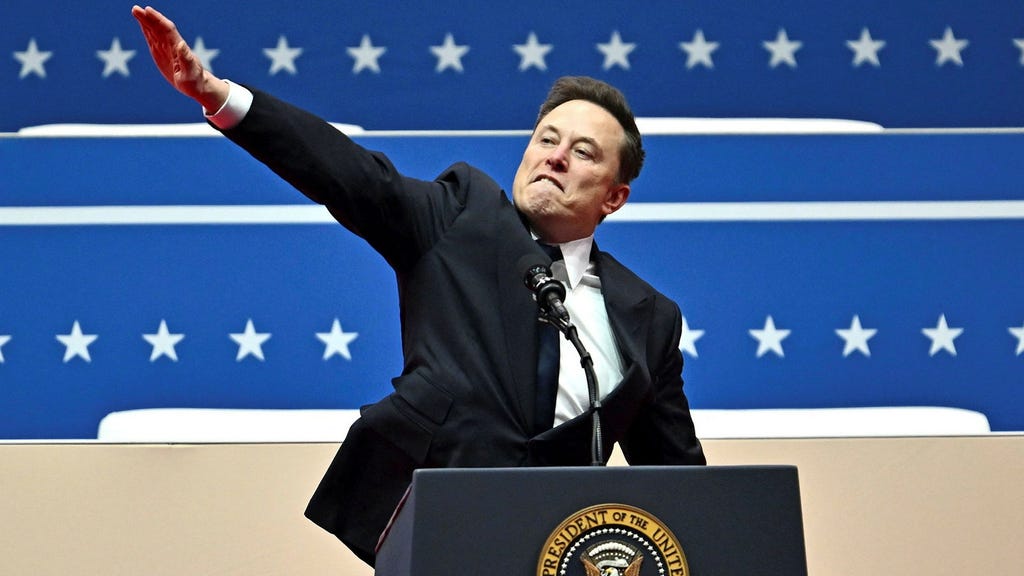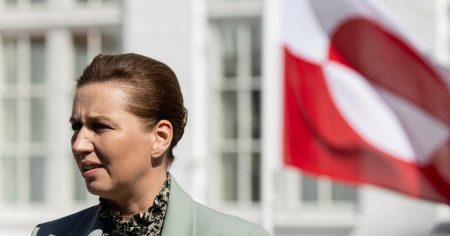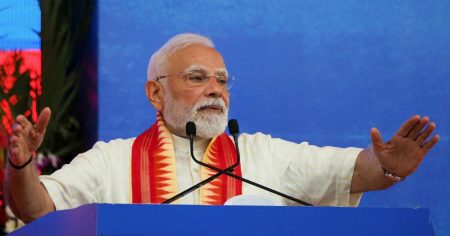Elon Musk’s recent gesture, raising his arm in a manner reminiscent of a Nazi salute during a victory speech, has ignited a firestorm of controversy, particularly in Germany, a nation acutely sensitive to the historical echoes of such actions. The incident has sparked widespread condemnation, with prominent figures voicing alarm over the perceived trivialization of a symbol deeply intertwined with the atrocities of the Nazi regime. Michel Friedman, a German-French publicist, expressed grave concern in an interview with Tagesspiegel, arguing that the transgressions of both Donald Trump and Elon Musk have reached a dangerous level, posing a threat to the stability of the free world. Friedman underscored the gravity of the situation by emphasizing the horrific association of the Nazi salute with brutality, dehumanization, and the Holocaust. The incident serves as a stark reminder of the enduring power of symbols and the potential for their misappropriation to cause significant societal harm.
The legal implications of Musk’s gesture have also been subject to scrutiny in Germany. Judge Kai-Uwe Herbst, speaking to Berliner Zeitung, stated that such a gesture could potentially be considered a criminal offense under German law, which strictly prohibits the display of Nazi symbols and gestures. However, Herbst clarified that a successful prosecution would hinge on proving intent, demonstrating that the gesture was deliberately performed as a Nazi salute. This legal perspective underscores the complex interplay between freedom of expression and the need to prevent the resurgence of hateful ideologies. The burden of proof, however, presents a significant challenge in cases where intent is difficult to ascertain definitively.
The controversy has further amplified on the German-language segment of X (formerly Twitter), the social media platform owned by Musk himself. Under the hashtag #Hitlergruß (Hitler salute), a deluge of posts has emerged, many mocking Musk and questioning his judgment. Tarek Baé, a prominent debattör, presented two stark interpretations of the incident: either Musk, fully aware of the gesture’s connotations, intentionally performed a Nazi salute, or he is simply clueless about appropriate behavior and social cues. This dichotomy highlights the difficulty of interpreting Musk’s actions, leaving room for both malicious intent and sheer ignorance as potential explanations.
Adding another layer to the controversy is Musk’s open support for the right-wing Alternative für Deutschland (AfD) party in the upcoming German federal elections. An anonymous account, Anonymous Germany, juxtaposed an image of Musk raising his arm with his statement “Only AfD can save Germany,” prompting the question, “More questions for AFD?” This association with a politically controversial party further fuels the debate surrounding Musk’s gesture, raising concerns about his political leanings and their potential implications. The incident has become a focal point for criticisms of Musk’s political endorsements and their perceived alignment with controversial ideologies.
Following the incident, Musk offered an explanation, claiming that his gesture, which involved tapping his heart before raising his arm, was simply a demonstration of affection for the audience. While the Anti-Defamation League, an organization dedicated to combating antisemitism, acknowledged the gesture as clumsy, they stopped short of labeling it a deliberate Nazi salute. Despite this assessment, the incident remains highly contentious, particularly in Germany, where the historical baggage associated with the Nazi salute renders any resemblance deeply unsettling. The controversy highlights the cultural sensitivities surrounding certain gestures and the importance of contextual understanding in interpreting actions.
The incident involving Elon Musk’s gesture unfolded against a backdrop of heightened anxiety in Germany, particularly in the wake of Donald Trump’s presidency. Publications such as Frankfurter Allgemeine Zeitung have articulated the widespread concern, stating that Germany has never been as vulnerable as it is today in the face of leaders like Trump. This vulnerability stems from the perceived threat to democratic norms and international stability posed by such figures. The Musk incident adds to this pre-existing unease, further fueling anxieties about the rise of populism and the potential erosion of democratic values. The controversy underscores the interconnectedness of global politics and the ripple effects of individual actions on international relations.














